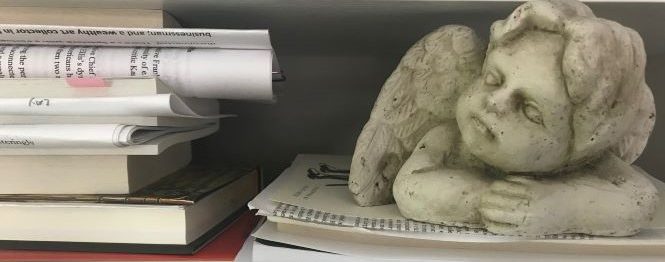 Last year, I lingered over Michelle Kuo’s memoir Reading With Patrick: A Teacher, a Student, and a Life-Changing Friendship, but I didn’t get a chance to read it. As 2018 rolled in, this mind-shifting memoir continued to call me – “mind-shifting” because Kuo’s story can’t help but shift our thinking to ourselves, asking if we could do what she did. I finally read the book, and I still keep thinking about Kuo’s courage and steadfastness in following the spirit of her heart and conscience.
Last year, I lingered over Michelle Kuo’s memoir Reading With Patrick: A Teacher, a Student, and a Life-Changing Friendship, but I didn’t get a chance to read it. As 2018 rolled in, this mind-shifting memoir continued to call me – “mind-shifting” because Kuo’s story can’t help but shift our thinking to ourselves, asking if we could do what she did. I finally read the book, and I still keep thinking about Kuo’s courage and steadfastness in following the spirit of her heart and conscience.
After graduating from Harvard, Kuo traveled to Helena, Arkansas, as a Teach for America volunteer assigned to an alternative school described as “a dumping ground for the so-called bad kids … who had been expelled from the mainstream schools.” She had planned to teach American civil rights history using black literature, but her truant, violent, drug-selling black teenagers showed no interest in James Baldwin, Malcolm X or even Martin Luther King, Jr. What did resonate, surprisingly, was writing poetry. Also, they loved reading young adult novels by black authors that Kuo brought to the classroom.
Fifteen-year-old Patrick Browning stood out for his perceptiveness and willingness to learn: He responded to Kuo’s encouragement, flourished at reading and – a significant change for him – showed up every day. He also used his influence with the other students to get them to pay attention to Kuo. But two years after she began teaching, the school closed due to lack of funding. Kuo struggled with whether or not she should teach in the main public school, where her students were being transferred, and ultimately decided to return to Harvard to attend law school.
Two years passed. Kuo received word from friends in Helena that Patrick Browning had been jailed for murder. She visited him in the Phillips County Jail and then again, a year later, on the eve of starting her new job in California. This time, an inner voice told her to drop everything and help Patrick, and she did. She took a deferral on the start date of her new job and for the next seven months visited Patrick every day in jail. Together, they read books, and discussed and memorized classic and modern poetry. Kuo wanted to help Patrick make sense of his life, and through literature she succeeded. Patrick questioned and found himself in what he read, developed intellectually and improved his writing skills. He wrote eloquent letters to his daughter, and to the mother of the boy he killed.
The beauty of this memoir lies in large part with Kuo’s soul-searching, often mentally wrestling with what she thinks is right for herself, for Patrick and for the impoverished black lives in the Mississippi Delta region. Her sensitive, probing nature comes through as she writes about whether to go or stay in Helena, let alone if she — an Asian American who grew up in western Michigan – could do right by Patrick. She is keenly aware of the extreme differences in their life experiences and worries if she can truly understand his feelings.
Throughout her time with Patrick, Kuo continually sees with new eyes the disadvantages of growing up in one of the poorest places in the country. With compelling thoughtfulness, she writes about racial injustice in the rural South, pondering its roots in the post-Civil War years between Reconstruction and World War II. By doing so, her memoir expands into an engaging meditation of why employment, education and the court systems in the heart of the Mississippi Delta fail black Americans, like Patrick.
After Patrick’s court date and plea bargain, Kuo again left Arkansas. At the end of this unforgettable memoir, she writes that she often imagines the version of Patrick’s story if she had not gone to law school. “I know what I am doing: wishful thinking, crazy thinking,” she writes. “I know that maybe nothing would be different if I had stayed, that Patrick might have kept living his life and I mine. And I know it sounds as if I think I could have saved him, as if I think I’m so important in his life. It’s not like that.”
A version of this review was broadcast on WOSU 89.7 FM, an NPR member station.
